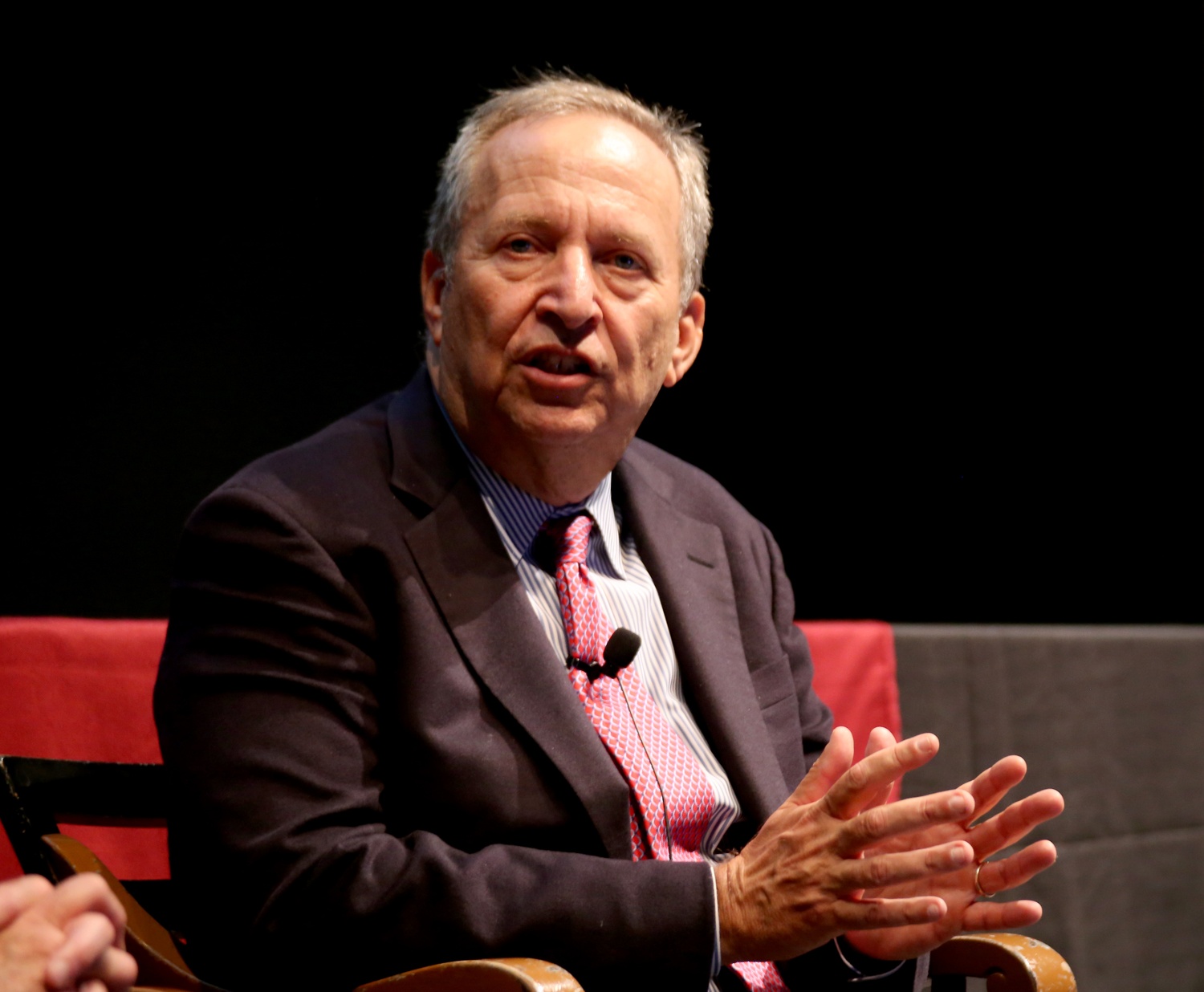
News
Progressive Labor Party Organizes Solidarity March With Harvard Yard Encampment

News
Encampment Protesters Briefly Raise 3 Palestinian Flags Over Harvard Yard

News
Mayor Wu Cancels Harvard Event After Affinity Groups Withdraw Over Emerson Encampment Police Response

News
Harvard Yard To Remain Indefinitely Closed Amid Encampment

News
HUPD Chief Says Harvard Yard Encampment is Peaceful, Defends Students’ Right to Protest
Watchdog Group Urges Harvard, Media Organizations to Publicly Disclose Larry Summers’ Financial Interests

The Revolving Door Project, a left-leaning public interest watchdog group, called on Harvard University to disclose any corporate funding received by University professor Lawrence H. Summers in an open letter published July 11.
The letter, addressed to Harvard President Lawrence S. Bacow, Washington Post Executive Editor Sally S. Buzbee, and Bloomberg News Editor-in-Chief John Micklethwait, said Summers should publicize “any personal income or academic funding he receives from corporations, or from entities principally funded by corporations.”
The letter from the Revolving Door Project also urged Harvard to require its faculty to publicly disclose any financial ties that could cause a conflict of interest.
“Views reached by prominent intellectuals in the course of their academic work are accorded greater deference than work funded by a private entity in order to advance a specific, narrow interest,” the letter stated. “It is of the utmost importance for the quality of democratic debate and for Harvard’s reputation that the university not allow its name to be misused as a shield from public scrutiny for less respectable affiliations.”
In a statement, Summers wrote that he complies “with all of Harvard’s requirements.”
“This [is] monitored through my annual disclosure to Harvard,” Summers wrote. “My personal policy is to go beyond Harvard’s requirements by not engaging in paid public advocacy or advocacy to public officials on behalf [of] any commercial entity.”
Harvard University’s current conflict of interest policy was first adopted in 2010, and most recently amended in 2012. It requires members of the faculty to internally disclose “all significant financial interests” to allow the University to respond to any conflicts of interest.
Harvard spokesperson Jason A. Newton declined to comment on the letter from the Revolving Door Project, which called on the University to reveal Summers’ financial ties publicly.
Summers, who is frequently cited as a top economist, writes a column for the Washington Post and is a frequent contributor on Bloomberg TV. In recent months, Summers has been a vocal critic of the Biden administration’s economic policies.
“Professor Lawrence Summers is taking prominent, public positions on the Biden Administration’s antitrust enforcement actions and economic policies,” the Revolving Door Project wrote in the letter. “Given that fact, and the well–documented reality that corporate interests often subsidize favorable views of their work and power, it is essential for the reputation of Harvard University, Bloomberg News, and The Washington Post that the public be fully informed about any funding Summers is taking from corporations he is explicitly or implicitly commenting on.”
“Without proper disclosure, Professor Summers, and thus Harvard, Bloomberg, and The Washington Post lose credibility,” the letter added.
Washington Post deputy editorial page editor, wrote in a statement that Summers authors “a monthly column for Post Opinions on macro trends in the economy.”
“If he comments on specific companies he consults for, we would disclose that, as we do for all writers,” Marcus wrote.
Nolan Higdon, a lecturer at the University of Santa Cruz’s Merrill College who studies critical media literacy, said the letter from the Revolving Door Project is “pointing to a real problem” in journalism.
“A lot of these credentialed elites in corporate legacy media are going to other corporate elites to act as experts,” Higdon added. “We end up with a feedback loop — almost propaganda — in the sense that audiences are not getting different perspectives or critical perspectives on what’s being told by these credentialed elites.”
Bloomberg News did not respond to multiple requests for comment.
Jason Furman ’92, an Economics professor at Harvard, said the open letter does not raise concerns about the legitimacy of Summers’ work because he is “someone whose ideas and arguments follow his research.”
“His positions are just very, very eclectic,” Furman added. “It’s really hard to trace them back to a donor or a financial interest when they are so all over the map because they follow the data as he sees it.”
Furman said he learned from Summers to refuse offers from companies to author favorable studies for them for financial compensation.
Eleanor Eagan, research director of the Revolving Door Project’s governance team, said Summers occupies a “rarefied position” among academics because he is “quoted on basically almost any topic under the sun.”
“So it really matters if something else is informing those opinions beyond simply his academic expertise, or expertise from various professional experiences,” Eagan added.
—Staff writer Miles J. Herszenhorn can be reached at miles.herszenhorn@thecrimson.com. Follow him on Twitter @MHerszenhorn.
Want to keep up with breaking news? Subscribe to our email newsletter.
